The Naked Gun: From the Files of Police Squad!, 1988 - ★★★★
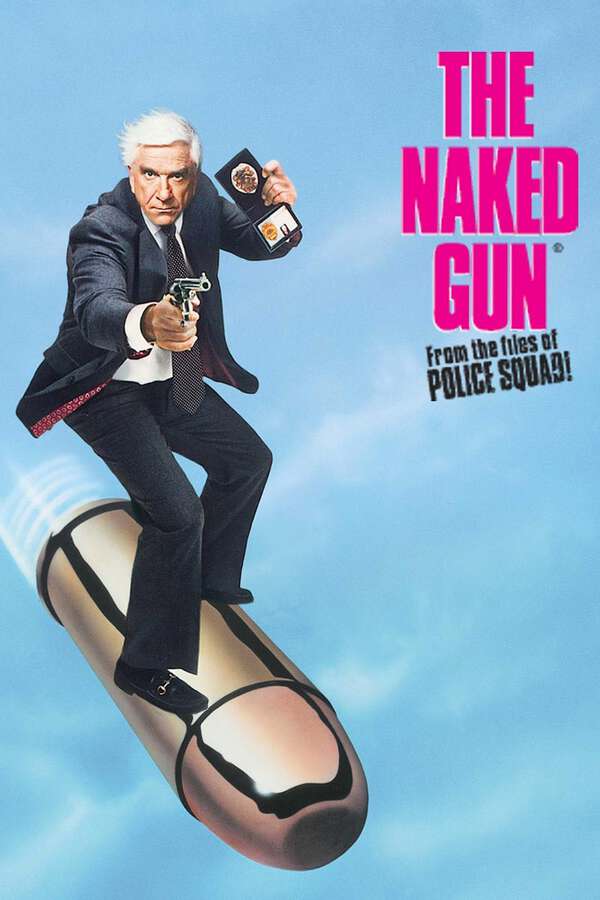
This stands up surprisingly well after all these years. A hilarious romp. Some of the worst parking you’ve ever seen.
A list of 50 best comedy films we were looking at puts it above Airplane which I don’t personally agree with. But it’s up there near it, certainly.
Game Night, 2018 - ★★★★

A gloriously funny romp. A farce in the best sense. A couple like to have regular game nights. His brother likes to win. So do both of the couple, to be fair.
But the brother wants to put on a special game night. And things get crazy.
Peter Higgs, physicist who proposed Higgs boson, dies aged 94
It’s a good age, as far as that goes. He was already professor emeritus at Edinburgh back when I was at uni. Still sad, though.
Society of the Snow, 2023 - ★★★½
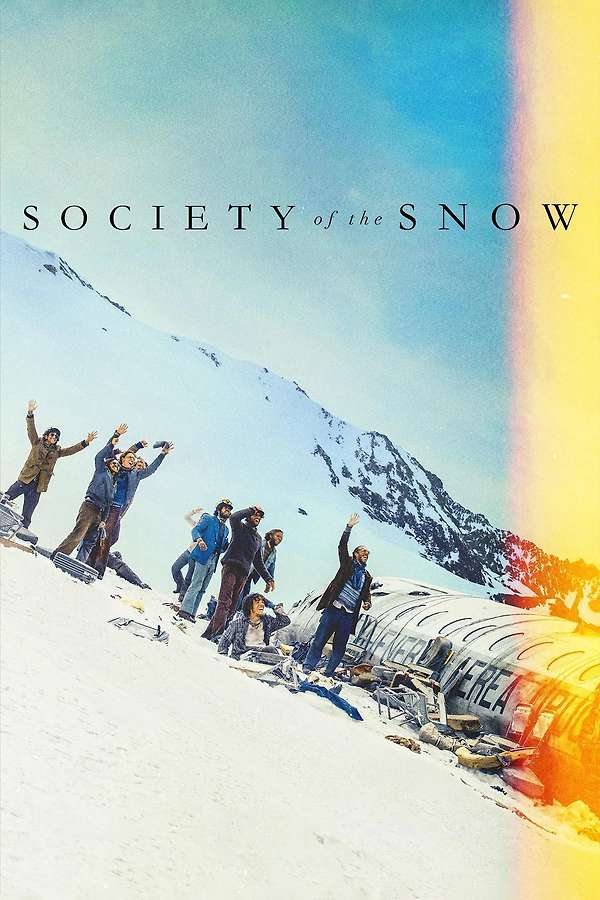
A dramatisation of the horrifying experiences of a rugby team from Uruguay whose plane crashed in the Andes on the way to Chile in 1972. Of the 43 people aboard the plane, 16 survived to eventually be rescued 72 days later!
This film contains some terrifying, extremely well-executed scenes. The crash itself, an avalanche that buries the plane after a few days. It's all immensely powerful and affecting.
Not a fun watch, exactly but a worthwhile one.
And yes, they had to eat what you imagine they had to eat, to survive. It's very well handled.
Finished reading: A River Called Time by Courttia Newland 📚
I got this as a Christmas present from my beloved. I had no idea who Courttia Newland is. I assumed it was a woman, at first. It’s not, and it turns out I had experienced some of his work already, as he wrote some of the scripts for Steve McQueen’s Small Axe series of films; specifically Lover’s Rock, Red, White and Blue , and Education . (I wouldn’t bother clicking those links, it looks like I didn’t write anything about them.)
I started the novel without reading any reviews or anything about it other than the blurb and quotes on the cover. The key one of those is this, from the Observer:
A vast and wildly ambitious piece of speculative fiction that asks what the world would look like if slavery and colonialism never existed.
Which set me up with some expectations. Sensibly, Newland doesn’t make this imagined world a utopia. Far from it, in fact. The world in which the antagonist, Markriss, finds himself, is pretty grim.
And to my mind, at least at first, the only thing in-universe that tells us about the absence of colonialism, etc, is skin colour is never mentioned. Yes, the world is different from our own, and it turns out (reading around the novel) a major reason is, instead of the weird monotheism of Judaeo-Christianity-Islam having the major religious impact on world history, African religions have the biggest influence.
What this means for our hero is he can have an out-of-body experience and it not exactly be unexpected.
Which takes us into the whole out-of-this-world part of this novel. All those blurbs talk about it as a novel of decolonisation and so on, which is fine. But that’s because Newland has a mainstream, literary reputation — he has published several previous novels. This, though is a genre work. Science fiction, you might say, or fantasy, looked at from another direction.
And what nothing prepares you for (well, the reviews do, but I didn’t want to read them first) is that this is a multiverse story. Because Markriss’s ability to leave his body in his astral form develops to the point where he can do so permanently; and then drop back down into a different tributary of the titular river.
This takes puts him in an alternative version of himself: another timeline. Some have very similar events and experiences; some are very different, such as one that doesn’t look at all removed from our own. He always has some of the people closest to him, though their relationships vary.
It’s effective and accomplished, but it can be unsatisfying. Because, when he leaves a timeline, he leaves its story incomplete. We don’t know what happened to the first version of Markriss, or the second, or…
Sometimes the language, the linguistic style, can be confusing. But it feels like a positive sort of confusion, the kind that stretches your mind.
On the whole, I enjoyed it.
Books 2024, 6
Somewhere out there, I’m fairly sure, a crime is happening. But Saga will work it out.
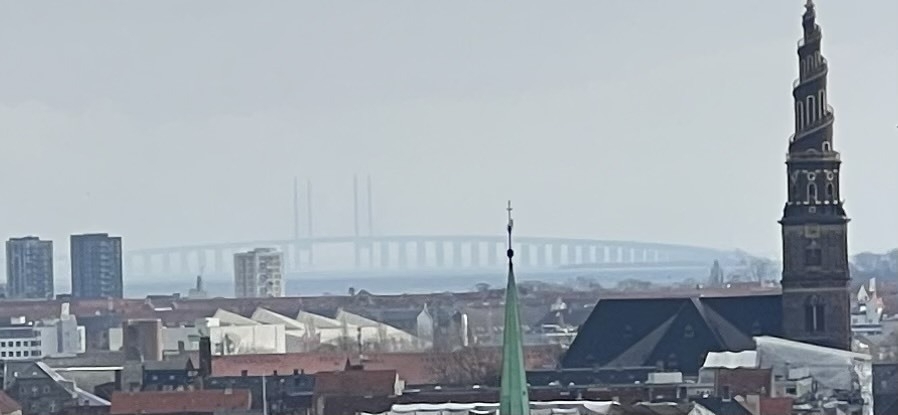
Dune: Part Two, 2024 - ★★½
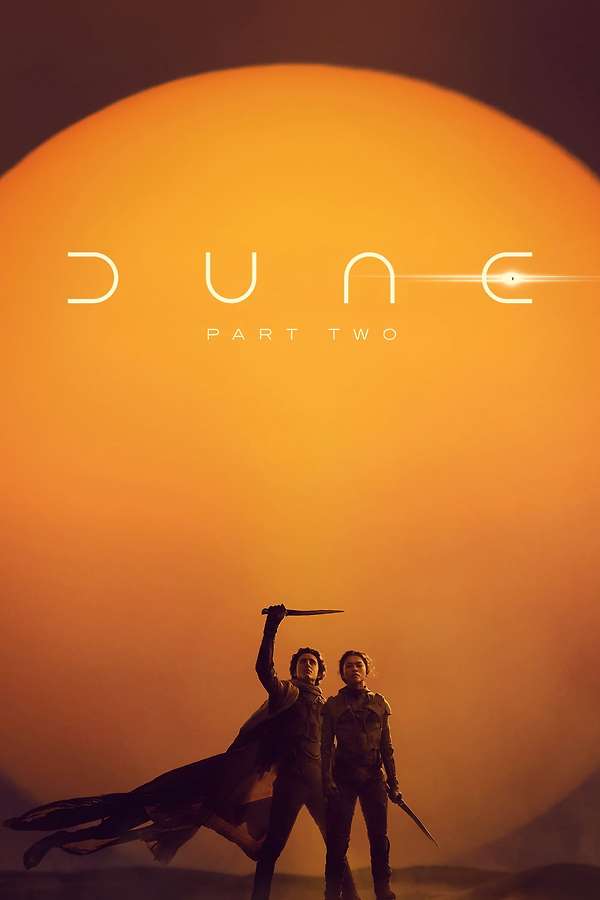
To the IMAX at Waterloo last Sunday, with a group of fellow writers from the Spectrum group. As I said, I wasn't that impressed when I watched part 1 on Netflix. Still, this would be wholly different, not least because of it being on a giant screen.
Which was true enough. That screen is almost too big, certainly when you're sitting in row G and there's a closeup: Timothée Chalamet's face shouldn't be gigantic! Luckily there weren't too many of those occasions.
More to the point, this a spectacular movie, in the literal sense: it's all about the spectacle. And there's plenty of that. Battles, explosions, sandworms, duels.
And it's all a bit… not that good really, I thought. I liked parts of it. But really disliked the overall narrative arc. As I said last time, I remember the book hardly at all. So the transition of Paul Atriedes from teen duke trying to find his way with the Fremen, to world leader and messiah figure challenging the galactic emperor himself? Frankly, I don't buy it, and I didn't like it.
My favourite moment was Chani (Zendaya) turning away and walking out when everyone else bowed down to him. In fact in acting terms Zendaya is the best thing about this film. She can express so much just with her face, it was incredible.
Of course that ability might have been exaggerated by her face being the size of a bus, but no one else was doing that.
The worst thing about it in a ways was that it didn't feel like the end brought us to a conclusion. It felt like the middle volume of a trilogy. And I'm quite sure the original book didn't feel like that. I know there are several sequels, but I don't believe it was written as the start of a series. It was a self-contained work.
In fact I started the second one, Dune Messiah (and yes, that title should have given me some clues to the above complaints) all those years ago, and couldn't get into it. Didn't finish it.
The odd thing about all this is that it makes me slightly want to go back and read the book (and maybe carry on this time).
Anyway, there we are. There had do be someone who didn't think it's the best thing since freshly-baked baguette.
Finished reading: Monument Maker by David Keenan 📚
This is a monster, behemoth of a book. At over 800 pages it’s not the longest I’ve read in recent years, but it’s up there. And it is… very strange.
I’ve read several of Keenan’s books before, and enjoyed them, but found them strange. This one is composed of three or four different narratives. They’re interlinked, or at least interconnected, but they’re very different.
A love story in France of a few years ago about someone who is studying cathedrals (sort of); a historical story about the Siege of Khartoum; a far-future science-fiction story supposedly written by two of the characters in one of the other sections.
And so on. It will bear rereading, I imagine, but I’m not sure I’ll dedicate the time. I started it just before Christmas and finished it this morning. With a few other books in between, but still.
Books 2024, 5
The Aviator's Wife, 1981 - ★★★★

Yet another in our Eric Rohmer fest. I think this might be my favourite of them so far. A guy follows a couple around Paris because the man is the (married) ex of his girlfriend, and he wants to know what the man — presumed to be the titular flier — is doing with the woman he's with (is she the titular spouse?), when he's supposed to have left the city.
Daft but fun, as usual.
BBC 6 Music is playing a live set from their festival, and I turned it on and thought, ‘How can there be a Joy Division live set?’ Till I realised it’s a live DJ set. Mary Anne Hobbes is playing ‘Transmission’. Whew! I thought things had got really weird there!
Part 3 of the Bucatini Trilogy
I didn’t know I was writing a trilogy, but here we are.
After finding the mysterious pasta shape last weekend, having learned about it in early 2021 from an article by Rachel Handler in New York Magazine, we finally tried it last night.
Rachel believes bucatini is ‘the only noodle worth eating; all other dry pastas might as well be firewood.’ And she describes it as:
spaghetti but thicker and with a hole in it, meaning it absorbs 200 percent more sauce than its thinner, hole-free brethren, due to math.
Rereading the article now, I had forgotten that she did a whole investigation about the shortage, writing it as if it were about a grave conspiracy, and hoping she might be called ‘the Bernstein of Bucatini’.
So what of it?
It was… fine, I guess? Like spaghetti, but thicker.
But I fear we might not be getting the real thing. From the photograph accompanying the article, the hole through the noodles looks quite substantial. Whereas in the packet we have — the brand being Tesco Finest — the hole is quite narrow. The New York photo might be exaggerating the holiness, but I suspect we’re being fobbed off over here, with fakeatini.
Certainly there’s no way it collected three times the sauce that standard spaghetti does.
Of course, if you go back to my picture from the other day you’ll see that the packet describes it as ‘Spaghetti’ in big letters, with ‘bucatini’ underneath, in much smaller type, like a subtitle.
Maybe, rather than a fake, we have a hybrid.
Finished reading: And Then There Were None by Agatha Christie 📚
The latest book club book for me, and I read it in a day. Short, easy, and supposedly the most popular crime novel ever, or something.
It was OK, but I didn’t enjoy it as much as Murder on the Orient Express, which I read at Christmas.
Ten people are invited to a house on an island. Ten people die. But there’s no one else on the island! How can this be?
Books 2024, 4
Finished reading: The House at the End of the Sea by Victoria M. Adams 📚
First, a disclaimer: the author of this book was on the same Creative Writing MA as me, and I read a prerelease PDF that she sent me.
That said, it’s a really good young-adult fantasy story set in the real world, present day.
Or I think ‘middle grade’ is the sort of level it’s marketed towards. The main character, Saffi, is about 12. Her younger brother is maybe eight or ten. Their mum has died tragically young and their dad takes them from London to live with their grandparents in a B&B by the sea in Yorkshire.
The titular house has been in the family for generations, and it has A History. The kids hate it at first, but Saffi tries to adjust and to keep her brother’s spirits up. She is helped by a slightly mysterious local boy they meet.
And then a group of guests arrive at the B&B. In the middle of the night. Without coming through the door.
Things get stranger after that. Will Saffi and Milo save the family’s legacy, themselves, and their new friend’s home, from the plans of these powerful figures out of myth and fairytale? Only by reading will you find out.
It’s great. Get it for your kids.
Books 2024, 3
Well this is an exciting turnup: remember early in the pandemic, when there was an article in The New Yorker New York magazine about the inability to get a particular pasta shape? The pasta shape was equally mysterious over here. I wrote about it: Bucatini.
Well, at last, here it is.
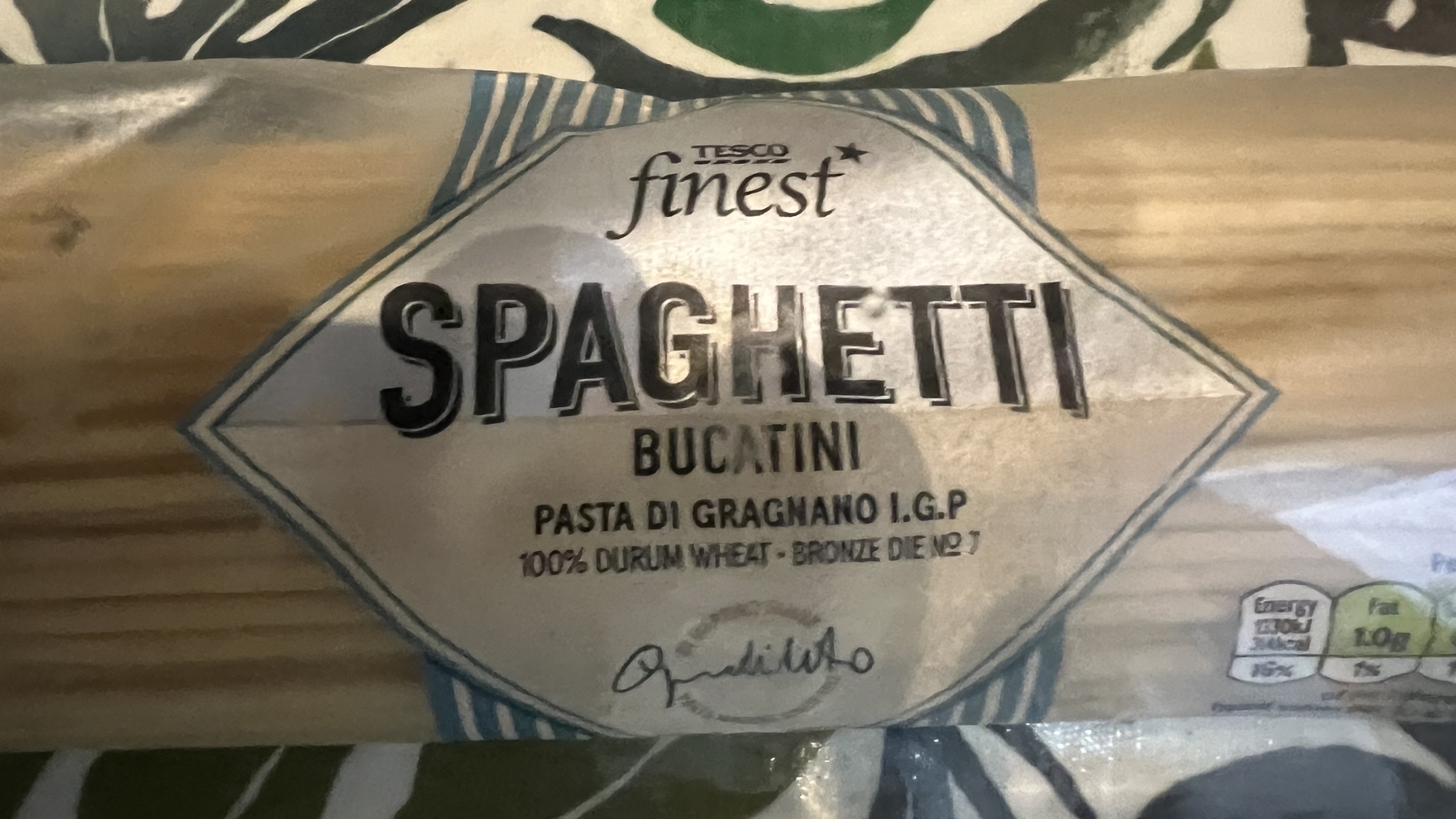
Dune, 2021 - ★★½
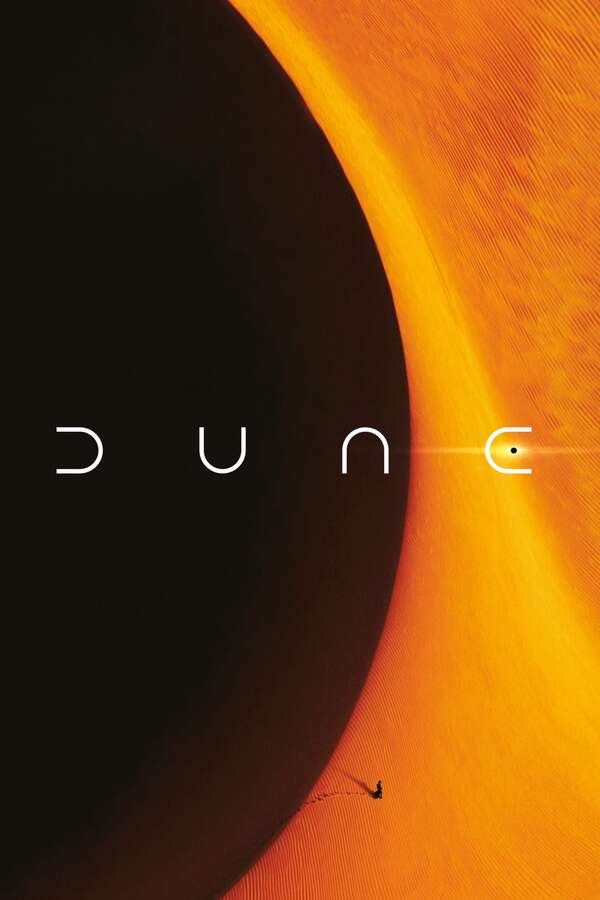
I'm joining an outing of my writing group to see part 2 at the BFI IMAX next month, so I thought I'd better watch the first one.
It's decades since I read the book, and not much less since I saw the David Lynch version, but I think I know the story too well (even though I don't remember it that well). Because I found this mostly kind of slow.
Certainly at first. It's well done, of course. The effects, the ornithopters, all that. But I was a bit underwhelmed, truth be told.
Still, it did pick up as it went along, and we'll see what happens with part 2, I guess.
Great, we’ve been paying billions for a nuclear ‘deterrent’ that nobody wants and that doesn’t even work.
Days of the Bagnold Summer, 2019 - ★★★½

Fun wee story about a teenage metal fan and his mum one summer. With music by Belle & Sebastian into the bargain.
My Girlfriend’s Boyfriend, 1987 - ★★★

We watched this on BFI Player, where its English title was the direct translation of the French one: My Girlfriend’s Boyfriend. But Letterboxd knows it as Boyfriends and Girlfriends. The French title is both better and more accurate, and the potentially-ambiguous meaning of ‘amie’ is matched by that of ‘girlfriend’ when used by women.
Anyway, another of Eric Rohmer’s excellent gentle comedies. And why not?
Custom and Use
In the lone footnote of his latest post, Ian Betteridge bemoans the use of the term ‘users’ for people making use of software:
I’ve always hated calling people users rather than customers. You owe “users” nothing. You owe your customers everything.
I remember seeing this complaint years ago. ‘Why do we refer to people with a term that comes from the illegal drugs trade?’ was a common refrain.
It’s true, people taking illegal drugs are sometimes referred to as ‘users’. But only really in 70s cop shows. I grew up on Starsky & Hutch and Kojak as much as the next guy my age, but I don’t look to them for appropriate linguistic terms today.
More to the point, the term ‘user’ doesn’t come from the drug trade, it went to it. The term just comes from the English language: from the verb ‘to use’.
Anyone who uses any item is a ‘user’ of that item. If I cut a slice of bread, I’m a user of the bread knife. If I go into the garden to gather the still-uncollected autumn leaves, I’m a user of the rake. And so on.
Ian prefers the term ‘customer’, and that’s fair enough if you bought the item in question. But he also writes about using Obsidian, which is a piece of software that is available at no cost. I use it every day, but I’m not a customer of the people who make it. Ian may pay them, as it’s possible to do for certain features, or just to support them. But there are plenty of examples of software for which that is not the case. It’s just free. You’re not a customer of Linus Torvalds when you use Linux, for example.
Anyway, my feelings are almost the opposite: being a user — or a reader or a listener or viewer, for that matter — is the truth, is the state that has power, has meaning. Not the tawdry commercial act, the mere fact of when or whether we bought a thing.
🔗
… delighted to announce the open source first release of Pkl (pronounced Pickle), a programming language for producing configuration.
If Apple needed a general-purpose language for configuration, why did they invent their own, rather than using Terraform, say?
But then, this Pkl (‘Pickle’) seems a lot more expressive than Terraform, and a lot more down-to-Earth and less cloudy.
Could be interesting. (H/T @danielpunkass.)